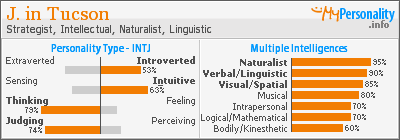--a shoeshine?
Lunchtime reading--
I've come across a column in yesterday's International Herald Tribune...
(www.iht.com: you can read it in its entirety below...)
Instantly, I think back to living in Nicaragua--
how many times I would be running errands in downtown Leon,
with boys as young as 7 or 8 years old chasing after me, offering
to shine my shoes...
...and I would be torn between the notion of 'giving the kid honest work' and
'not wanting to enable' a broken system in which the shoeless (!) kids
should have been in school instead...
Then again, maybe the kid's family couldn't even afford to buy the mandatory uniforms...or textbooks...
...or there might have been an unscrupulous guardian keeping the kid out of school on purpose
so that he could make a few cordobas to bring home...
I actually would consciously wear sandals instead, sometimes;
no one offers to shine your sandals for a cordoba.
(At the time, one cordoba was equal to about US$0.17.)
================================
Shoeshine politics
By Roger Cohen
International Herald Tribune
Thursday, April 3, 2008
Broadly speaking, there are two kinds of societies: those where you can get a shoe shine and those where you can't.
France falls into the latter category. Search Paris high and low for a seat to kick back and "se faire cirer les bottes": You'll search in vain.
There's something about the idea of having someone stooped at the feet of a client applying polish to his or her boots that rubs the Gallic egalitarian spirit the wrong way. It's just not what 1789 was about.
In the United States, of course, it's a different story. Unlike humor, which is in short supply, or banned, a shoe shine is freely available at U.S. airports. Walk a few Manhattan or Chicago blocks and someone will be there to make your shoes gleam.
There's something about having someone applying polish to a blithe client's boots that comforts American notions of free enterprise, make-a-buck opportunism and the survival of the fittest.
But free enterprise is a little suspect in Europe. The Continent prefers free-ish enterprise.
Germany is much like France in its resistance to the shoe shine. That makes 145 million Europeans or so, spread from Bordeaux to Berlin, with scant access to this particular micro-service. Odd, when you think about it.
Or perhaps not, for the shoe-shine rule goes something like this: If you can't find one, you are probably in a society with a developed sense of egalitarianism and social solidarity, high taxation, a broad safety net, universal health care, extensive entitlements and high unemployment. Read: A European society like France or Germany.
If you can find a shoe shine, you're probably in a place with low unemployment and little of the above social security, a place where capitalism is crueler and more vital. A place not unlike America.
What I find interesting right now is that no-shine countries are taking a hard look at the state-heavy system that created societies where the incentive to take a job like polishing shoes was low to nonexistent, while shine-rife nations are asking if unfettered capitalism's hidden hand might not need a little more state guidance.
Call it a rare case of trans-Atlantic convergence.
The Sarkozy revolution in France, of still uncertain outcome, was essentially about the French realization that a country where it was often more profitable not to work than to work was a country with a problem.
It was about the admission that the pursuit of a 35-hour week, as the Chinese and Indians strive for a 35-hour day, was suicidal. It was about looking at facts and trashing taboos, not least one that made praise of U.S. business punishable by (political) death.
President Nicolas Sarkozy and his finance minister, Christine Lagarde, have had the courage to say that tax cuts, the curtailment of unemployment benefits and other entitlements, later retirement, and incentives for those working over 35 hours are essential to usher France from the Big Sleep of the Mitterrand-Chirac years.
Like other European countries that have beaten high unemployment, including Sweden, France is waking up to the fact that good education is a better way to cut income inequality than high taxes. France has been a country where an entrepreneur ready to shine shoes would have been taxed out of existence before polish hit leather.
In the United States, rethinking is moving the other way. President George W. Bush has pushed for an America of "low taxes, weak government and strong religion," in the words of David Schulz, an attorney. That's been the culmination of a 40-year period in which Republican administrations have governed for all but 12 years.
No wonder the country is skewed! What you get over time is collapsing bridges in Minneapolis, decaying infrastructure, massive national debt, rising inequality, a derisory dollar and the unregulated financial markets that have produced the current mayhem - all "under God," it's true, but scarcely more lovely for that.
Even the Bush administration, trying to trump yet another Democratic election card, is now proposing more oversight for financial markets. But only the Democrats have the courage to say that more government and more equitable taxation are needed if you're serious about better schools, new infrastructure, health care and minimum social cohesion. It's past time the balance swung back from Republican excess.
So, do I prefer shoe-shine or no-shine societies? I favor the former because they give freer rein to the human spirit, but of course I'd like some attributes of the shine-free world, especially universal health care. That's doable while avoiding the entitlement-excess that sent France into its protracted doze.
If convergence goes far enough, look for shoe shines in France (as long as polisher and client are placed at the same eye level), and a tax on your U.S. shine. I'll believe it when I see it.
Thursday, April 03, 2008
Subscribe to:
Post Comments (Atom)

No comments:
Post a Comment